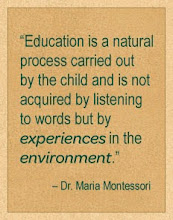Nurture a child's thinking skills

Harvard graduate and author, Sandra Parks, showed Greeley educators how important thinking skills are to each child’s success in school. At a workshop for District Six teachers she gave examples on how to nurture thinking in the classroom.
Inadvertently but fortunately I did many of the things that Sandra suggests. Watching videos of my children’s early years I noticed how much I talked with them! The spoken interaction greatly boosted their reasoning skills. My many questions gave them opportunity to ponder and express themselves. I also urged them to explore and feel, and this awareness stimulated their thinking. Studies of the brain show that focused interest, and sensory experience, actually lead to increased intelligence. The more exciting the information is that enters the brain, the more synapses, or connections, are formed to expand a person’s understanding.
Children also become competent readers when exposed to words they understand. The more words they know, the better they can think, whereas not being able to name what they see can stunt intellectual growth, sometimes even severely. Words are truly the stepping stones to knowledge!
To nurture children’s understanding, adults need to be responsive. Taking time to answer questions with care and patience will invite more wondering still. It’s when kids are curious that they analyze and learn! Yet, questioning and class discussions are often thought to be less important than learning facts. In his book, “Schools Without Failure “, education expert Dr. William Glasser writes, “A totally quiet, orderly, unemotional class is rarely learning. Quiet and order have no place in education as valued assets”.
Scientists too, find that learning must be exciting. Neurons literally only function when stimulated. Sadly, high demands put upon teachers leave little room for excitement or personal interaction with students. According to Rexford G. Brown “The lecture mode, known to be the least efficient way of presenting information, dominates far too many classrooms”. Walking the hallways of my daughter’s Junior High it always surprised me to not find a single classroom with desks arranged in a circle. Students always face the teacher and except for those in the front row, all look at other students’ backs too. Not exactly the best situation to get to know each other. Circle time, much like it was experienced in preschool or kindergarten, is still the best way to open up to each other and feel accepted.
Education only improves when teachers and students are involved with each other through thinking. Reasoning with peers and teachers fosters curiosity, which in itself is a way to understand and learn more. Students will develop a skill that leads to success in life more than anything else that’s taught in school. Glasser stresses “We must show that questions are just as important as answers. Factual answers are worthless unless they are linked to ideas and thinking. We must teach children to question without fear and to inquire into topics they and even their teacher don’t understand.”




